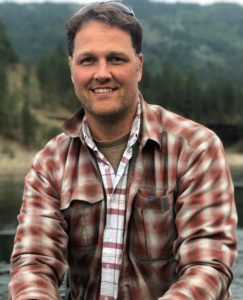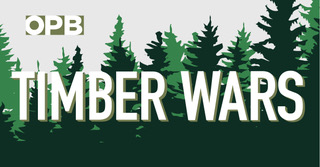Event Details
Where: Click here to watch the recorded lecture.
Additional Resources: Panelist Susan Jane Brown is featured in the Timber Wars podcast and in this Oregon Field Guide episode!
Lecture Description:
Economics or environmentalism? Trees or timber? Spotted owls or mill towns? 30 years ago our public forests became a battleground – where do we stand today and can these public lands overcome their divided history?
One of the most diverse forest landscapes in the Pacific Northwest is encompassed within the Columbia River Gorge. Temperate rainforests in the west transition to arid pine-oak woodlands in the east. These varied forests are all part of a complex ecosystem with an increasingly complex set of challenges. From Spotted Owls and Timber Wars to an unprecedented risk of wildfire – forests have played an undeniable and often contentious role throughout the west.
So how did we get here and what might the future hold for our public forestland in the Gorge? Join us for this special Sense of Place Conversation featuring Jay McLaughlin, Susan Jane Brown, Les Perkins, Erin Black, and moderated by Sense of Place host/curator, Sarah Fox.
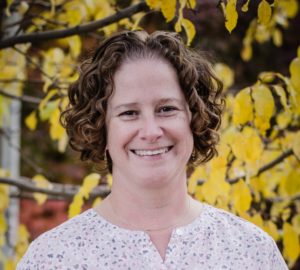 Susan Jane Brown is a staff attorney with the Western Environmental Law Center (WELC). Her primary focus of litigation is federal public lands forest management, but her practice includes cases involving the Endangered Species Act, National Environmental Policy Act, National Forest Management Act, and other land management statutes. She is a former Co-Chair of the National Advisory Committee for Implementation of the National Forest System Land Management Planning Rule and is also heavily engaged in collaborative forest restoration in the Upper John Day Basin in eastern Oregon.
Susan Jane Brown is a staff attorney with the Western Environmental Law Center (WELC). Her primary focus of litigation is federal public lands forest management, but her practice includes cases involving the Endangered Species Act, National Environmental Policy Act, National Forest Management Act, and other land management statutes. She is a former Co-Chair of the National Advisory Committee for Implementation of the National Forest System Land Management Planning Rule and is also heavily engaged in collaborative forest restoration in the Upper John Day Basin in eastern Oregon.
Jay McLaughlin is the founding executive director of Mt. Adams Resource Stewards, a community-based forestry organization focused on land stewardship and sustainable forestry in the Mt. Adams region of southern Washington. Much of this work strives to connect local people to efforts to manage our working forest landscape in a way that promotes the well-being of both our rural communities and the forests that contribute so much to quality of life in the region. Prior to that, Jay was a forester for the Bureau of Indian Affairs on the Yakama Reservation, a high school teacher and volunteer with the Peace Corps in Panama. Jay has a master in forestry from the Yale School of Forestry and Environmental Studies and a BA in Biology from Whitman College. He lives with his family in Glenwood, Washington.
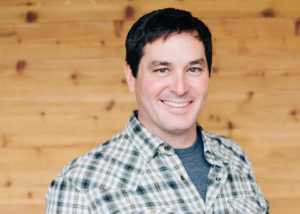 Les Perkins grew up in the Hood River Valley and graduated from Hood River Valley High School then went on to earn a BS in Biology from Lewis and Clark College. Les has owned his own business and worked for a local laboratory as a microbiologist, helped start Farmers Conservation Alliance, a local non-profit organization focusing on energy and water issues, and has been the manager at Farmers Irrigation District since 2015. Les has been a Hood River County Commissioner since 2001 where he focuses on forestry, energy and water issues. Les has been particularly focused on Hood River County’s forestry operations and the intersection with recreation, a local resource economy, and funding of local government services.
Les Perkins grew up in the Hood River Valley and graduated from Hood River Valley High School then went on to earn a BS in Biology from Lewis and Clark College. Les has owned his own business and worked for a local laboratory as a microbiologist, helped start Farmers Conservation Alliance, a local non-profit organization focusing on energy and water issues, and has been the manager at Farmers Irrigation District since 2015. Les has been a Hood River County Commissioner since 2001 where he focuses on forestry, energy and water issues. Les has been particularly focused on Hood River County’s forestry operations and the intersection with recreation, a local resource economy, and funding of local government services.
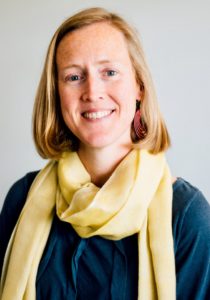 Erin Black works on the Gifford Pinchot National Forest where she serves as district ranger for the Mt. Adams Ranger District in Trout Lake, WA. Erin started with the Forest Service in 2002 and has spent her career in various ecosystem planning and management positions on the Mt. Hood National Forest, the Gifford Pinchot National Forest, the Columbia River Gorge National Scenic Area and the PNW Regional Office. Erin is a native of the Pacific Northwest (with most of her adult life in the Gorge) and appreciates the tension that exists around land management. A good day is when she can get two people who disagree to see the others’ perspective. She is the mom of two school-aged children, who create their own healthy conflict on occasion.
Erin Black works on the Gifford Pinchot National Forest where she serves as district ranger for the Mt. Adams Ranger District in Trout Lake, WA. Erin started with the Forest Service in 2002 and has spent her career in various ecosystem planning and management positions on the Mt. Hood National Forest, the Gifford Pinchot National Forest, the Columbia River Gorge National Scenic Area and the PNW Regional Office. Erin is a native of the Pacific Northwest (with most of her adult life in the Gorge) and appreciates the tension that exists around land management. A good day is when she can get two people who disagree to see the others’ perspective. She is the mom of two school-aged children, who create their own healthy conflict on occasion.
Listen to the Timber Wars podcast to learn more about the history and consequences of this conflict and then join us at Sense of Place on April 13th, 2022 for a panel conversation about our local forests.
*additional speakers may be added.

